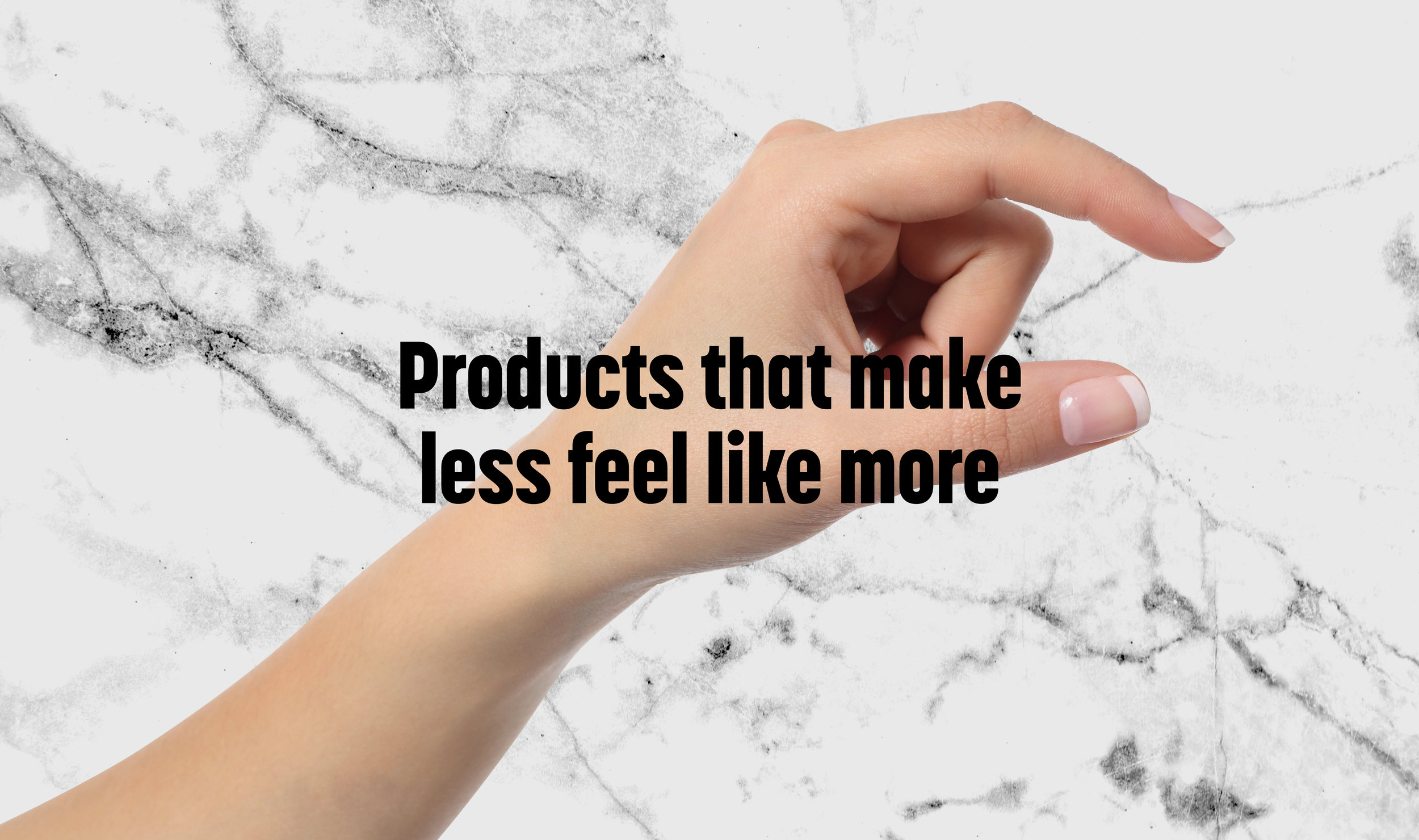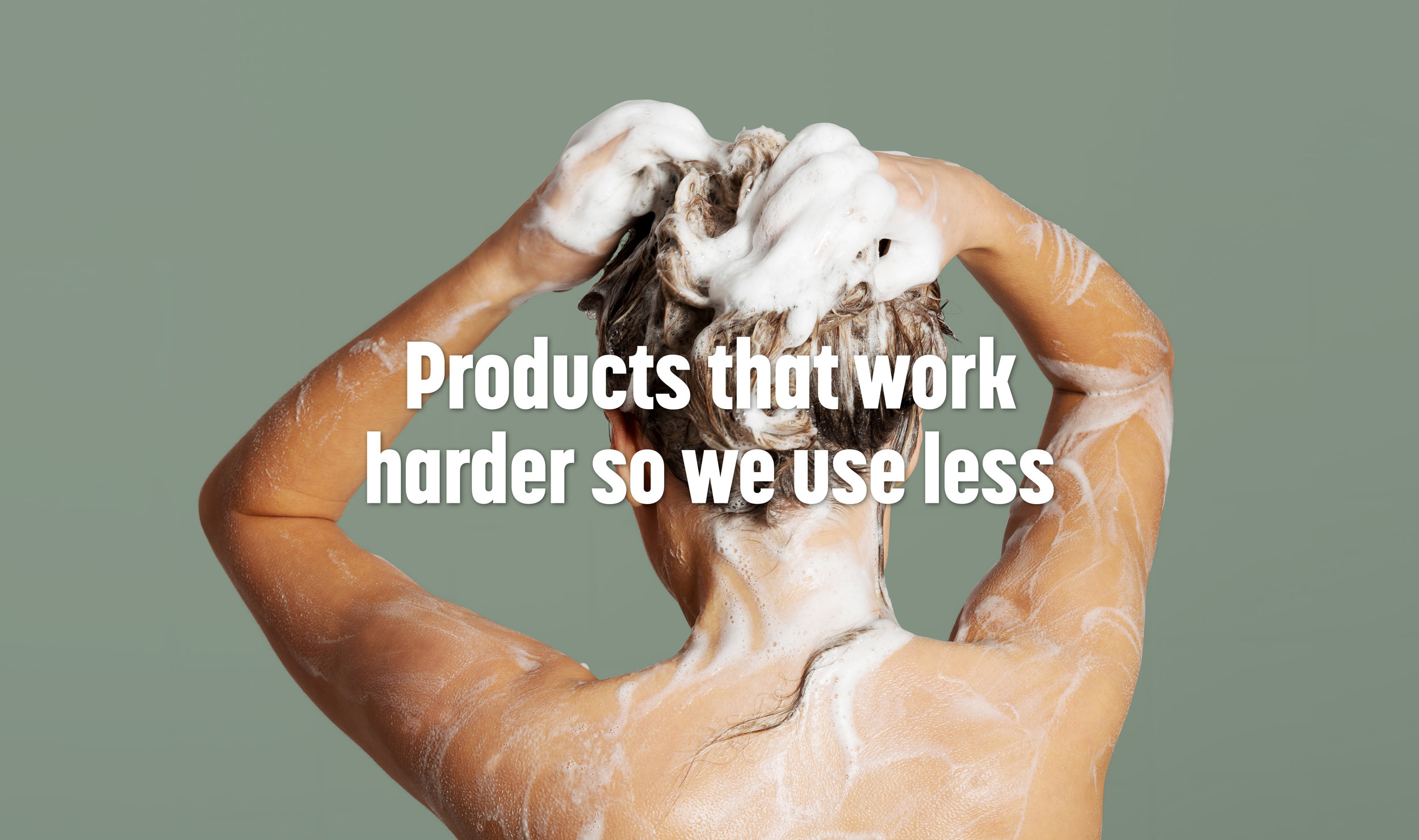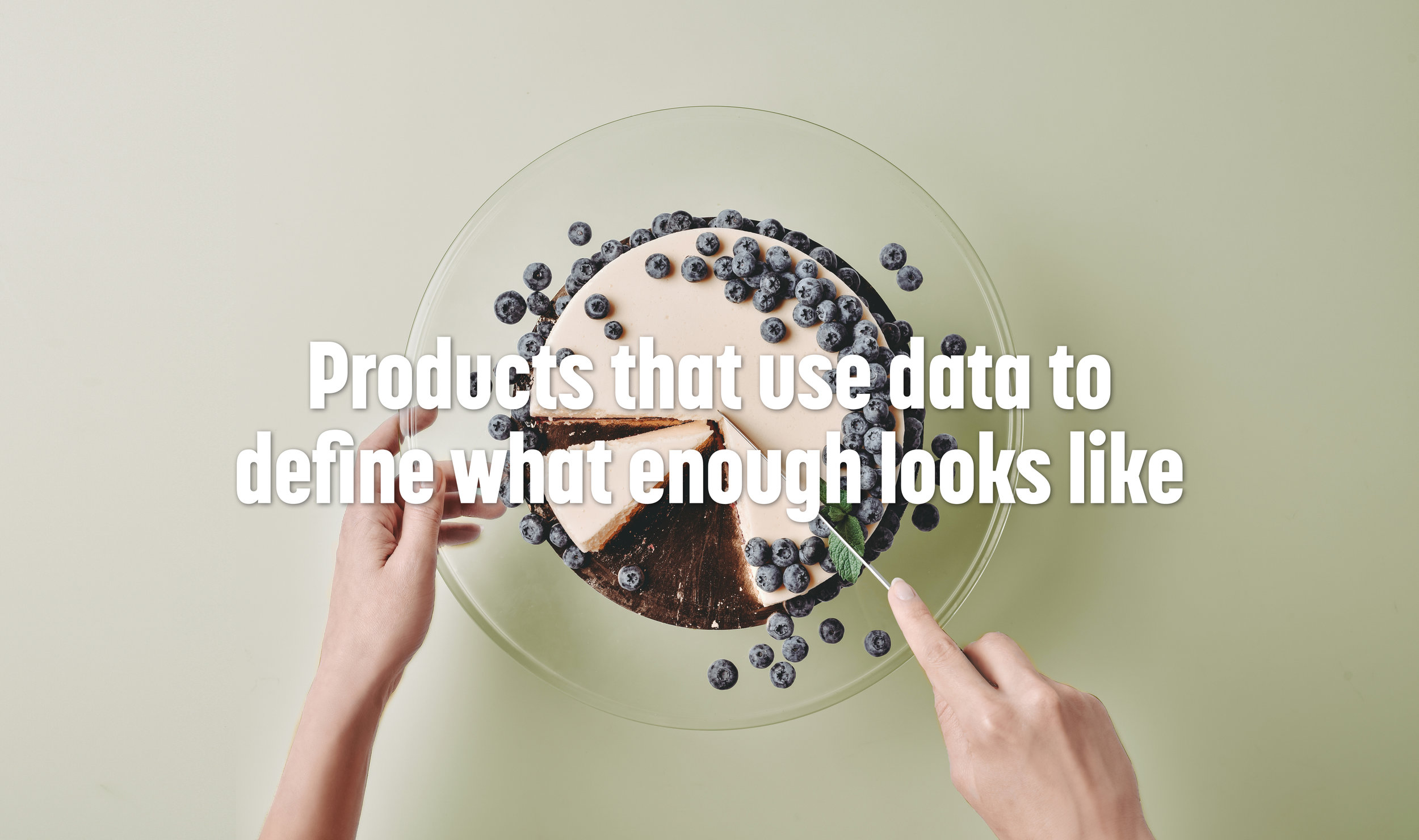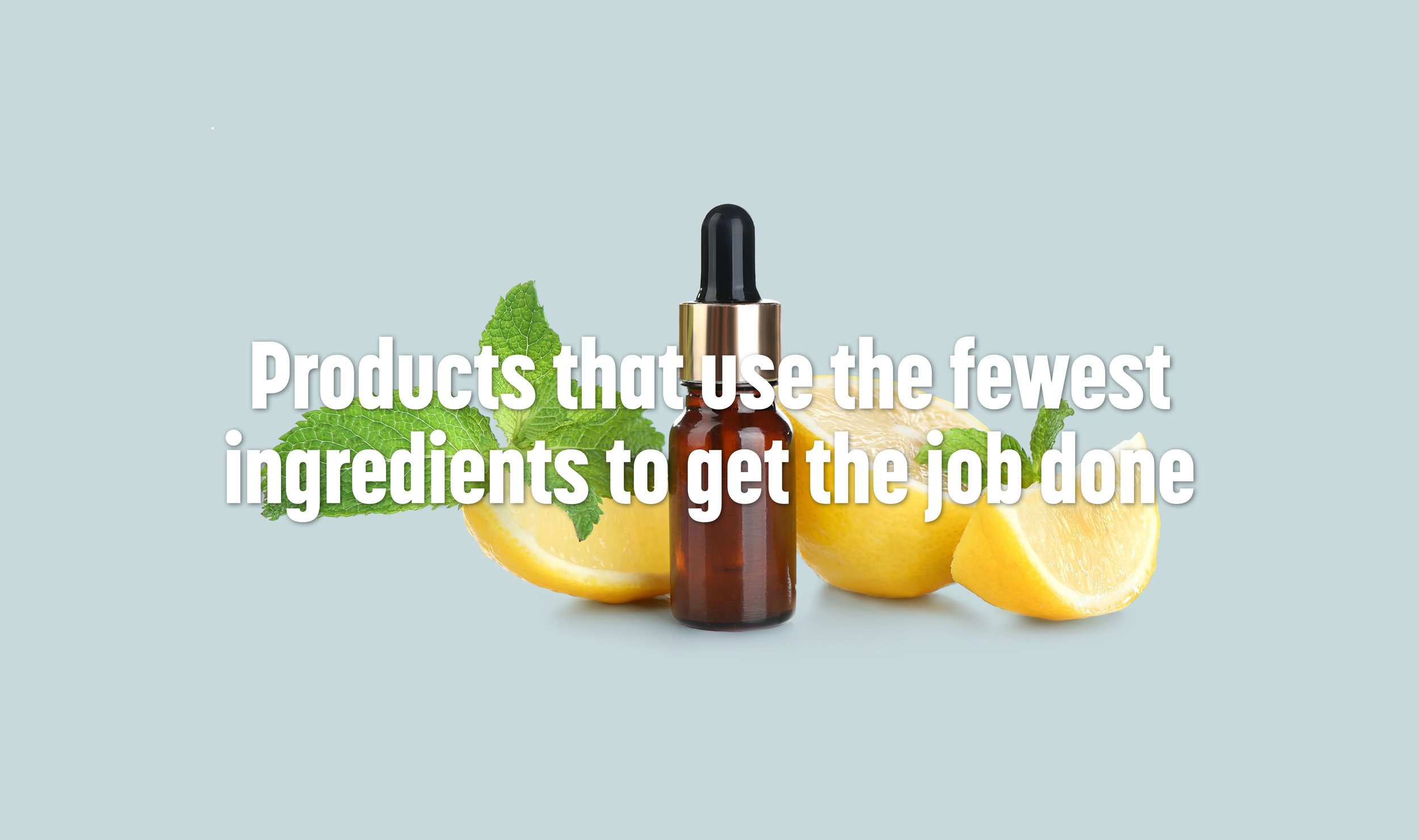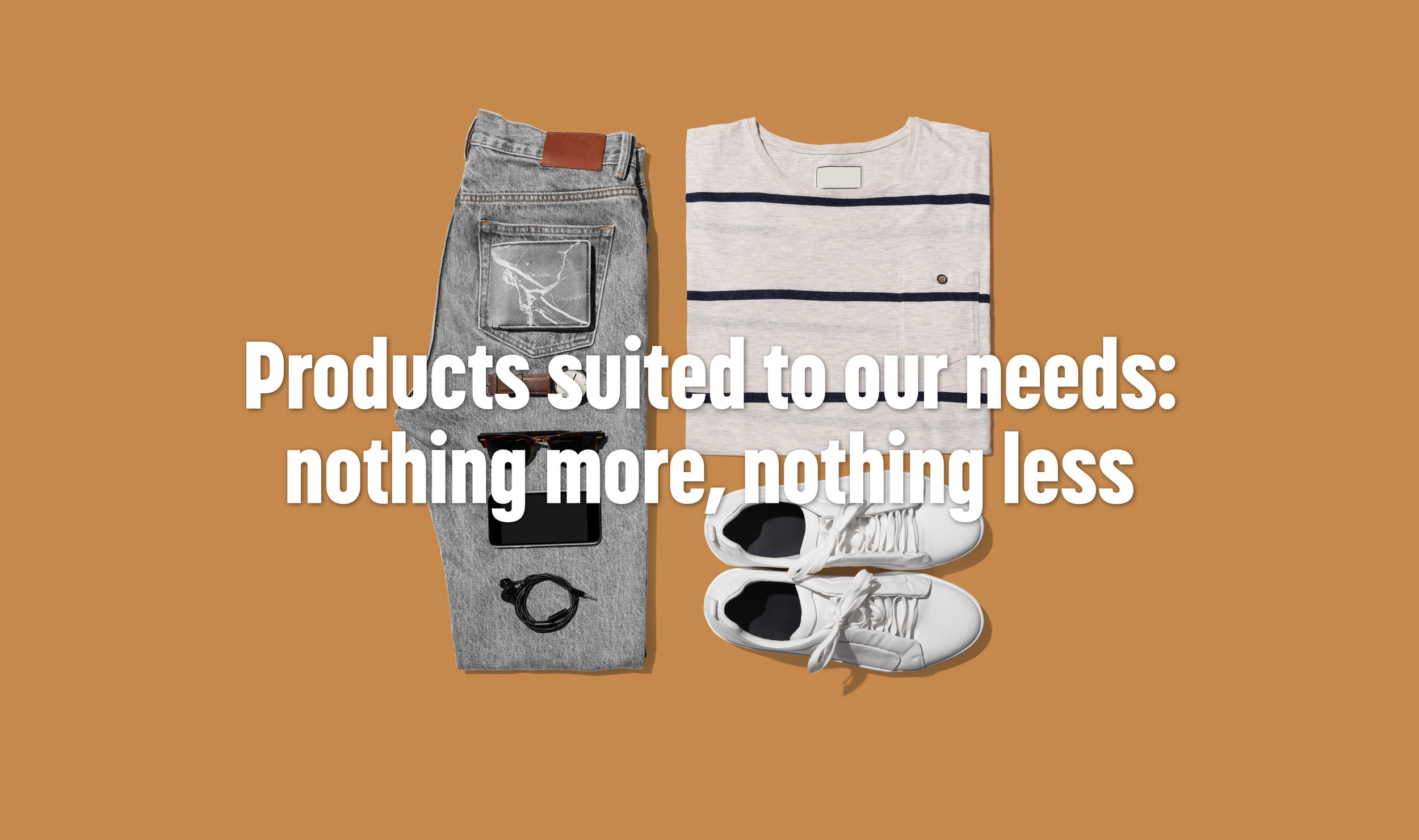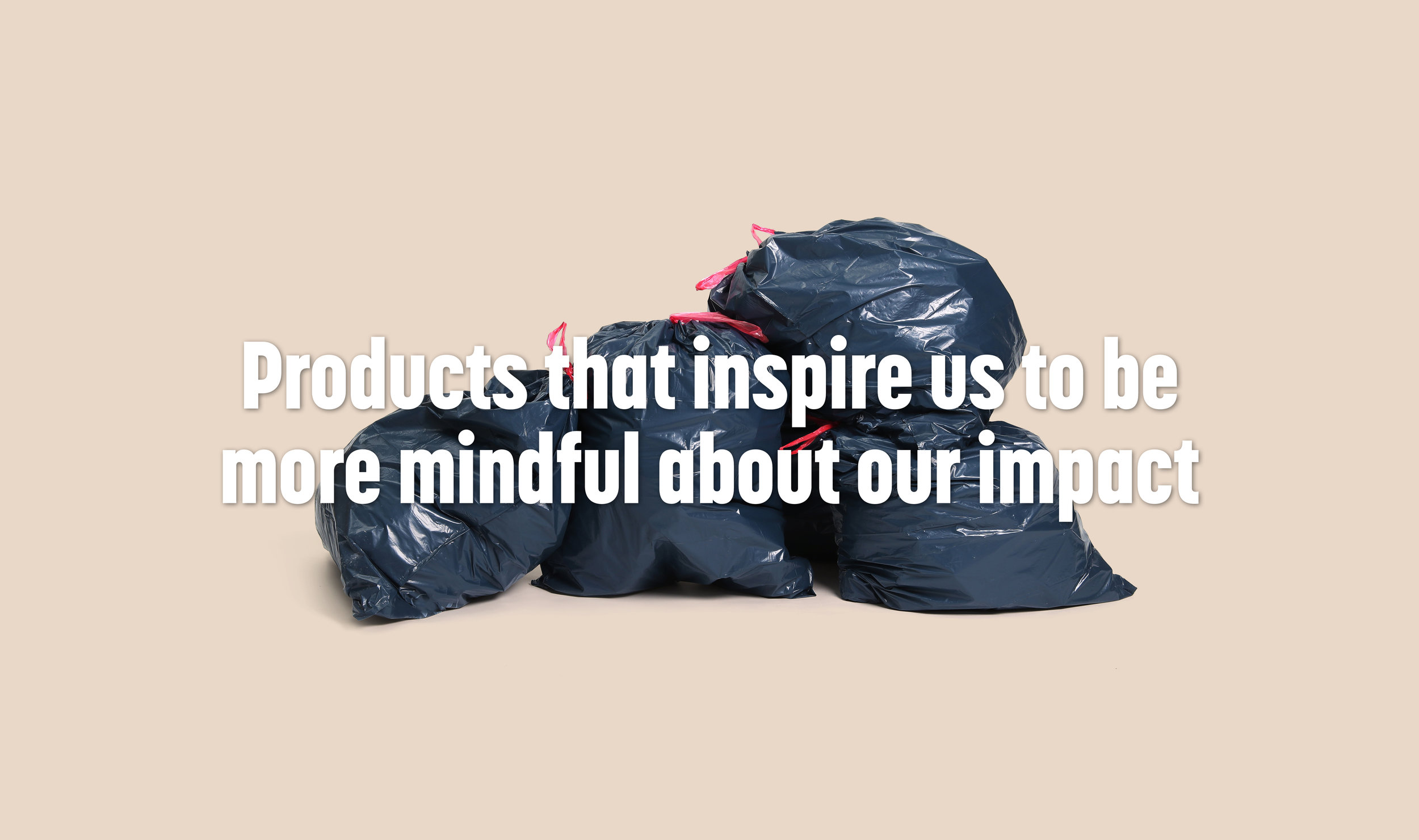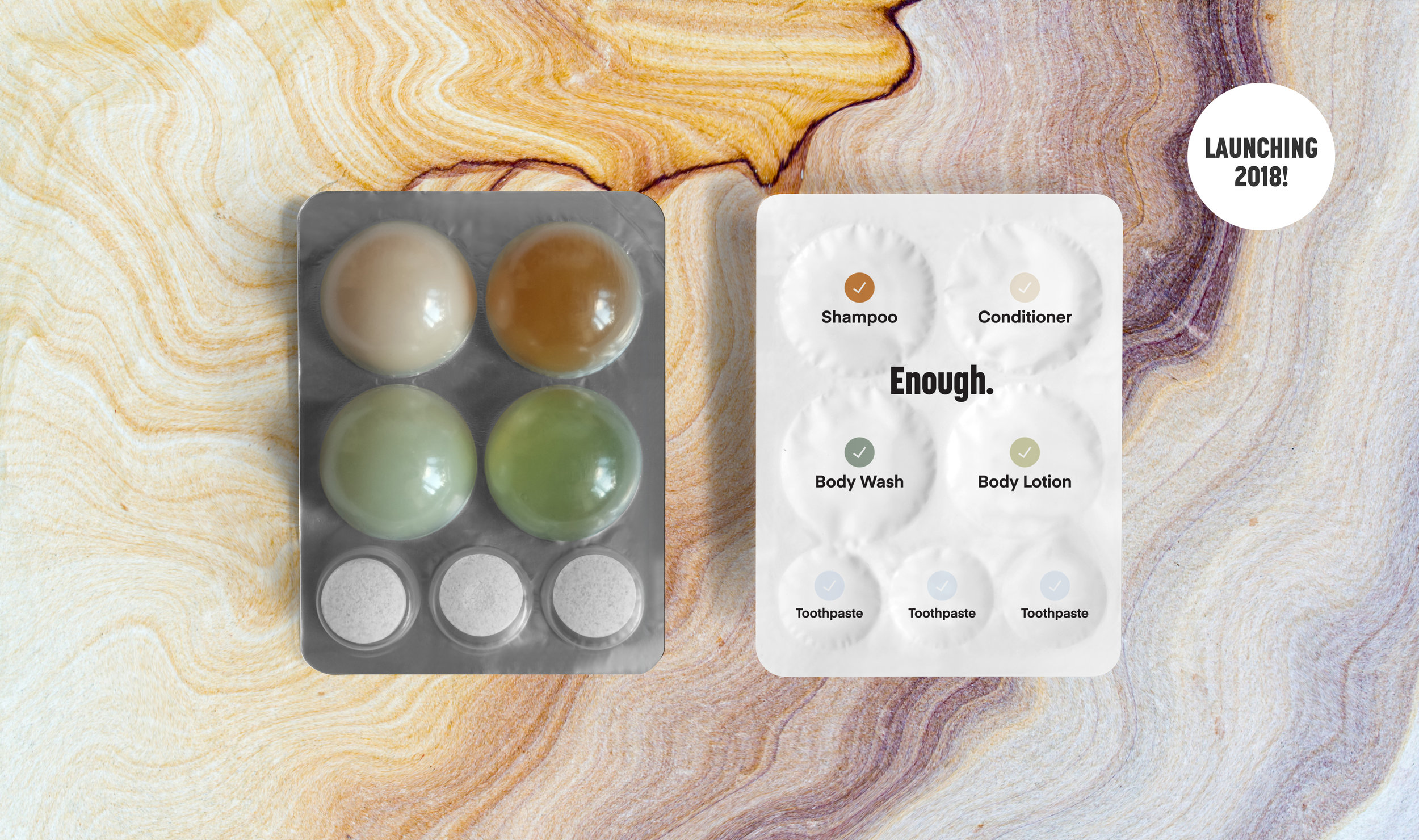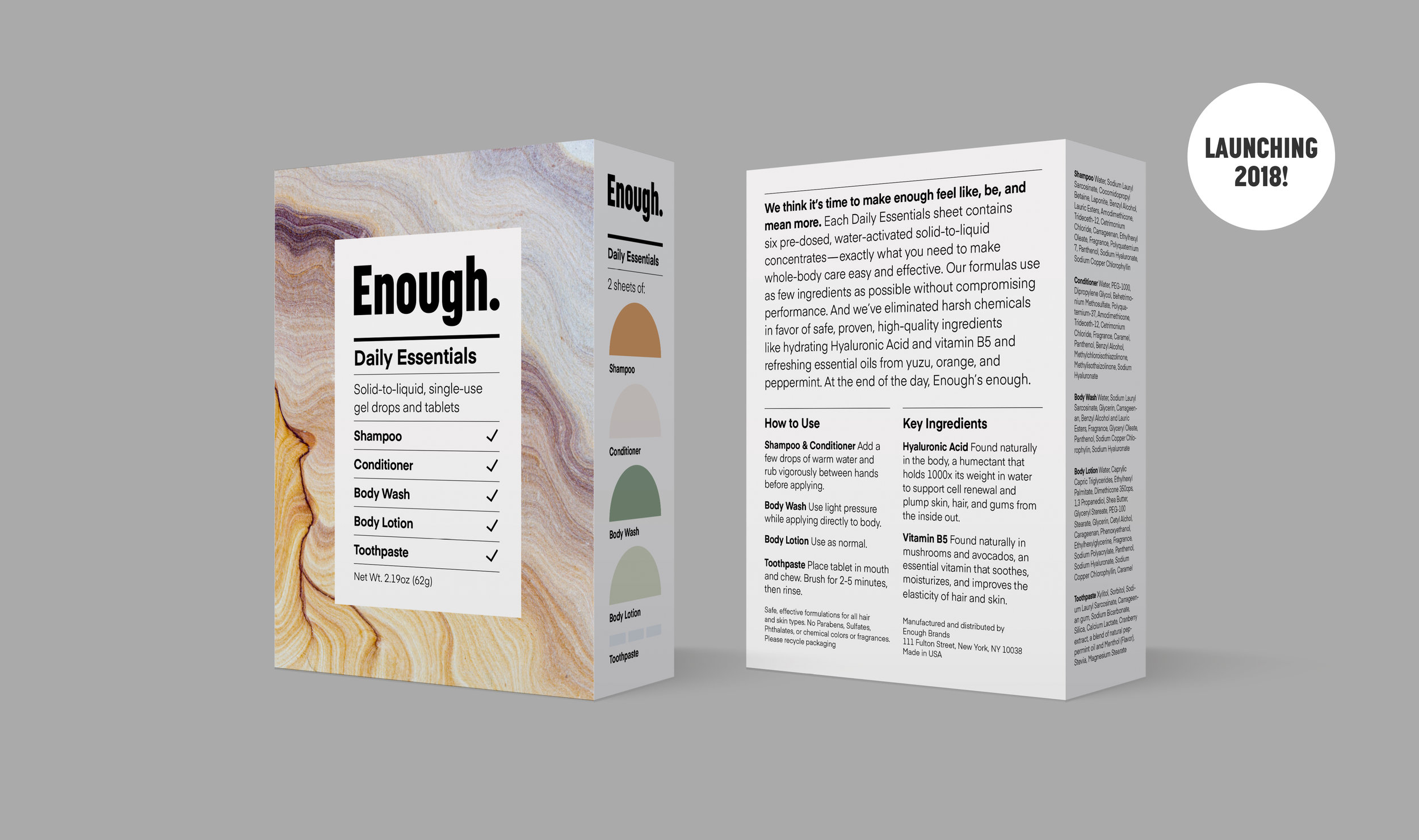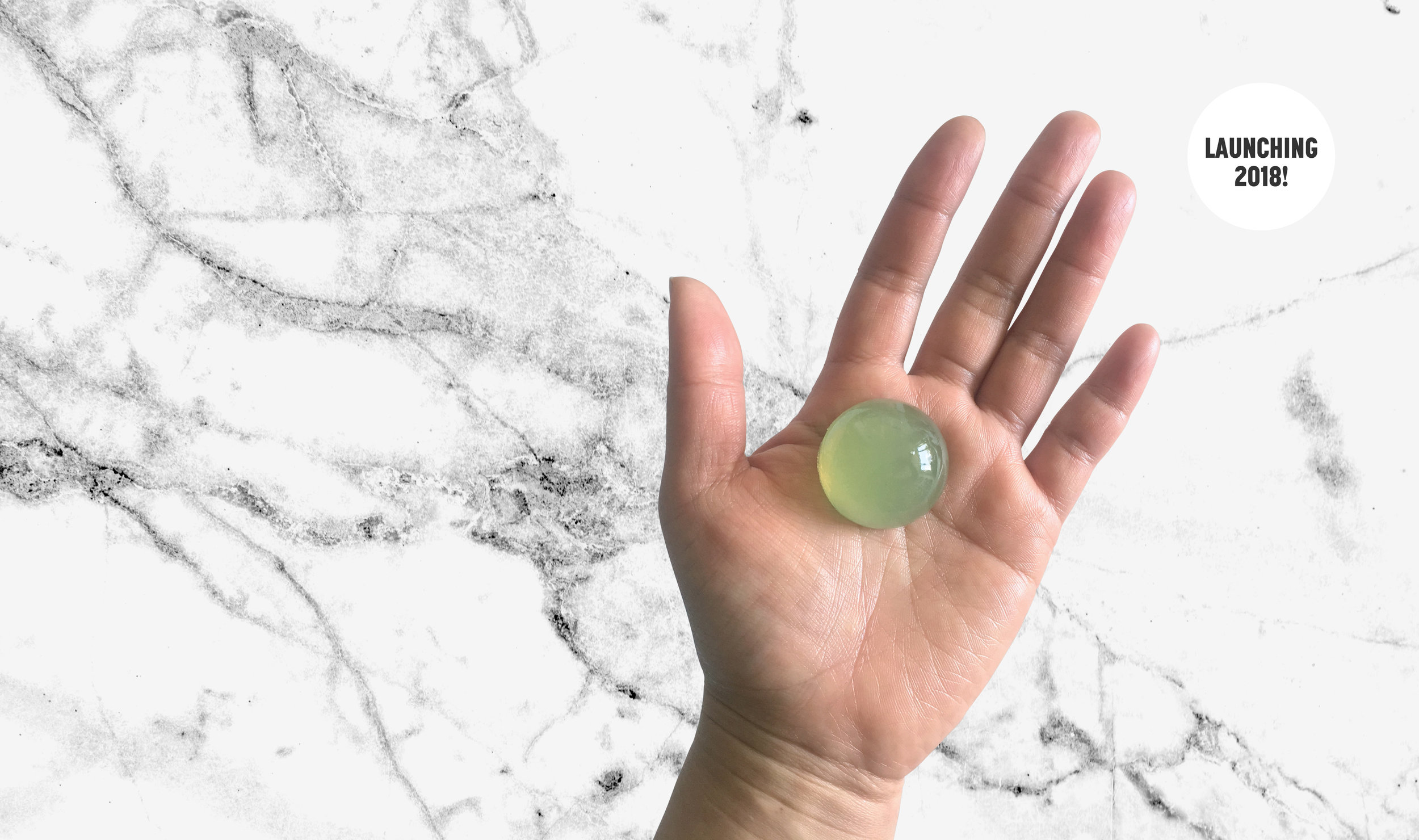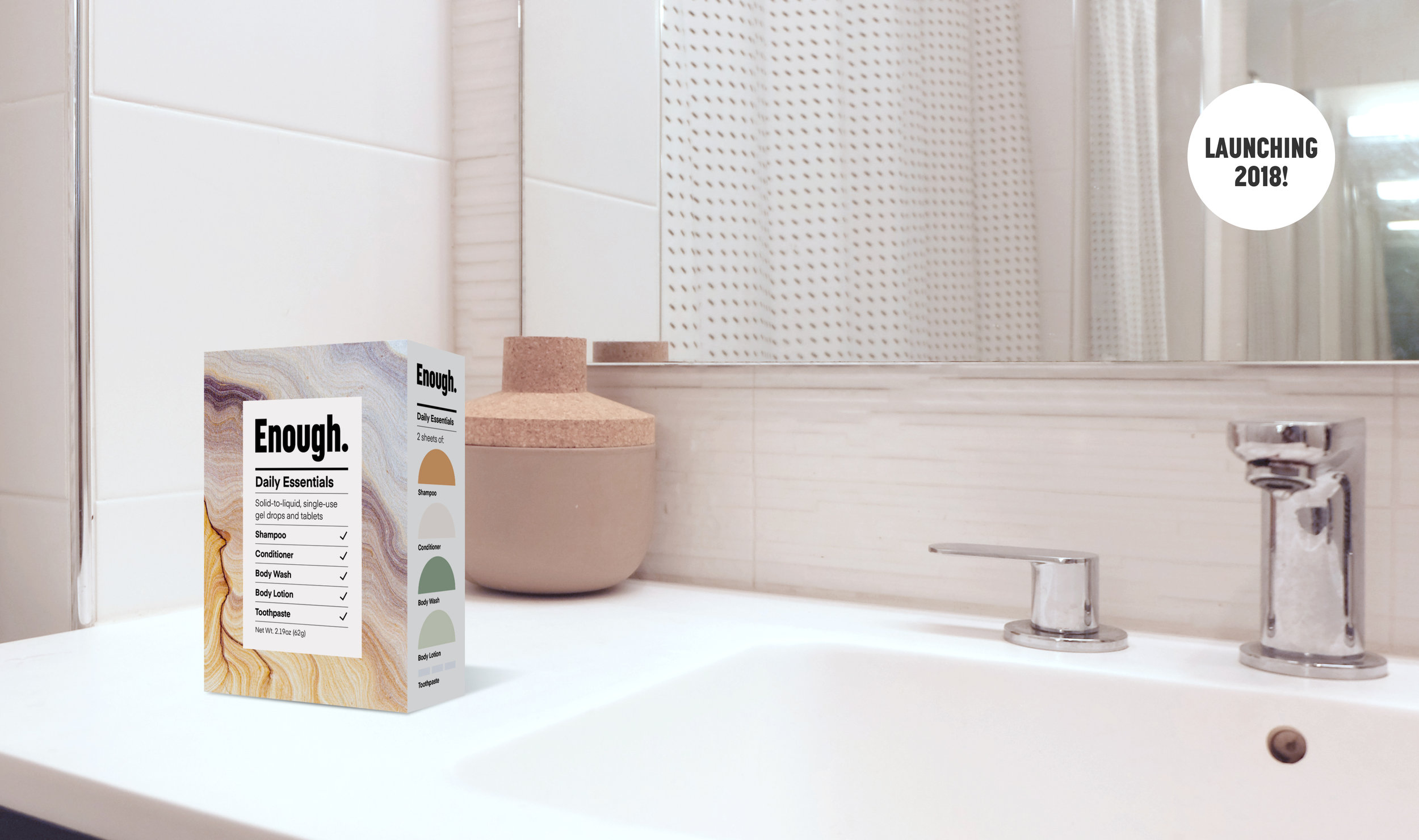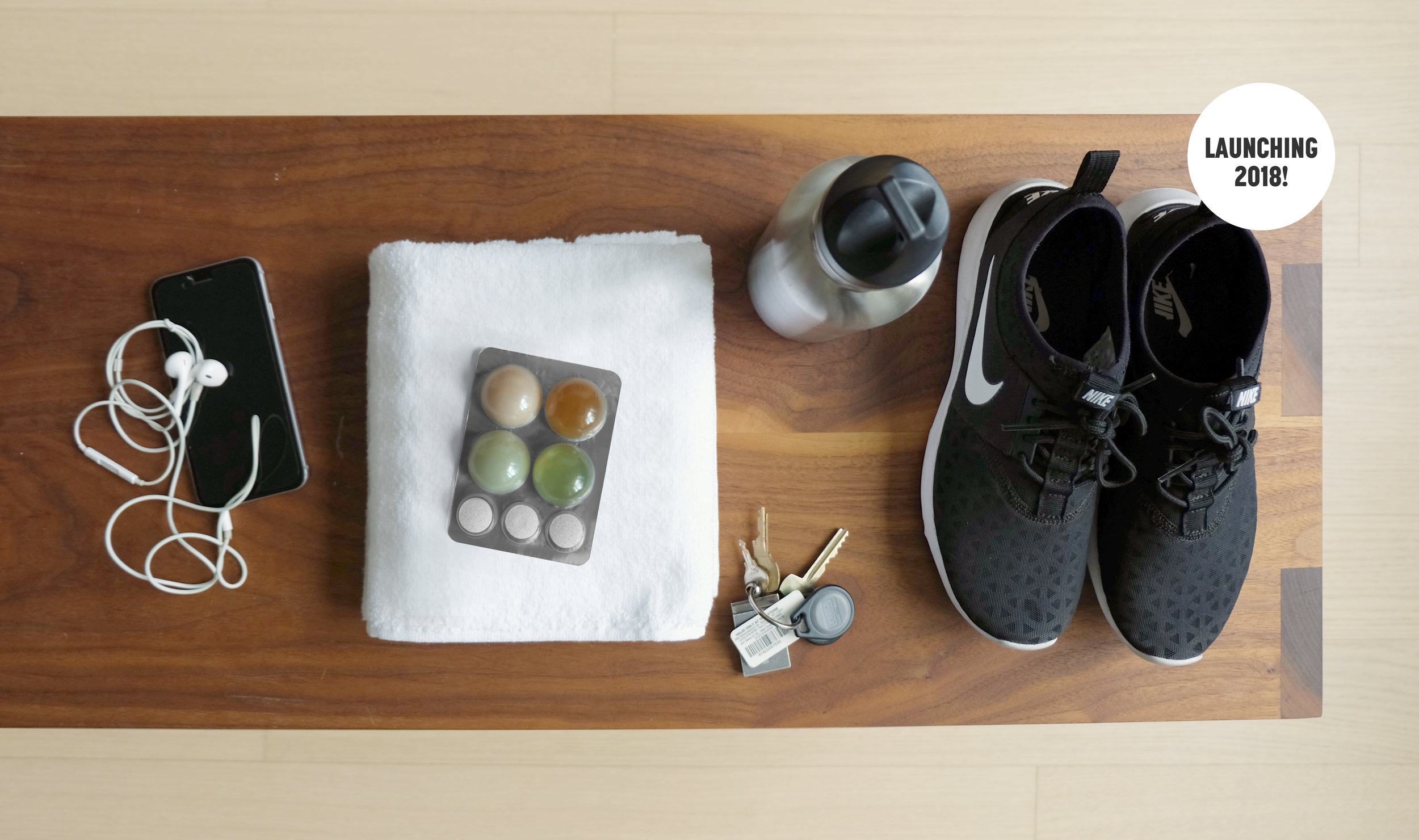PRODUCTS
Our first personal care product, Enough Daily Essentials, are sheets of solid-to-liquid, single-use gel drops that make whole body care easy and efficient.
- Single sheets includes one day's worth of bath, body, and oral care essentials
- Ends "best guess" dosing; amount communicated in days, not ounces
- Pre-portioned products eliminate product waste
- Concentrated solid-to-liquid gel drops contain less water than liquid products
- Safe formulations use as few ingredients as possible without compromising performance
- Packaging is lightweight, sanitary, recyclable, and leakproof
Each Daily Essentials sheet contains a day's worth of pre-dosed, water-activated concentrates of shampoo, conditioner, body wash, body lotion, and toothpaste—exactly what you need to make whole-body care easy and effective. Our formulas use as few ingredients as possible without compromising performance. And we’ve eliminated harsh chemicals in favor of safe, proven, high-quality ingredients like hydrating Hyaluronic Acid and vitamin B5 and refreshing essential oils from yuzu, Meyer lemon, and peppermint. At the end of the day, Enough’s enough.
Keep in touch! Sign up to receive access to exclusive news and events.
PURPOSE
Enough leverages behavioral and data-driven insights to make consumer goods that define what enough can look and feel like today. Central to our purpose is helping to define enough—a challenge that impacts nearly every aspect of our daily lives.
We’re taking on waste—waste that results when we consume products carelessly, extravagantly, or without purpose. Physical waste has serious repercussions on the environment and public health; wasteful behavior erodes our individual time, space, money, and energy.
While the market abounds with more sustainable versions of existing products, little has been done to address one of the greatest opportunities we have for positive impact: our consumption habits.
Irrational fears of shortage, an inordinate amount of choice, and mechanisms designed to make buying fast and convenient discourage thoughtful consideration of what—or how much—we actually need.
Our grandparents saved paper bags and hung their wash on a clothesline. They did so not because they were thinking about their carbon footprint, but because resourcefulness was inherent to the times and deeply rooted in their mother cultures.
Our homes reveal our excessive behaviors: the fridge contains week-old leftovers, the closet, clothes we never wear. When wasted or dormant, an embarrassment of riches can erode not only our bank accounts, but our health and happiness as well.
We have vastly differing notions of what the “right” amount is, whether we’re talking about pasta for a family of four or how much shampoo to use. But by combining behavioral insights with life-cycle analysis and economics, we can design products that teach us what enough looks like while being congruent with our needs, well-being, and resources.
Industry has the opportunity to advocate for positive change in absence of policy designed to protect consumer interests. By being transparent and open source with data, we can work collectively to create new norms and establish higher standards that benefit both people and the planet.
Enough is a philosophy, portfolio of products, and company with the aims of restoring balance in our ecosystem, across socioeconomic divides, and within people’s lives. It’s a common-sense, mindful approach to the things we consume, deeply inspired by our grandparents’ values and made possible through technologies available today.
TEAM
Enough is not just the name of our brand, it’s our single most critical design principle. It serves as both guidepost and guardrail for every decision we make—whether it’s our products, process, or organization.
We’re a company started by two founders whose upbringings, perspectives, and behaviors reflect either end of the spectrum: from austere to abundant, frugal to indulgent, hassle-filled to hassle-free. Enough is less about meeting in the middle, and more so about forging a new path forward: one in which we envision what it would take to make enough feel like, be, and mean more.
We’re inspired to develop products that are every bit as easy as they are efficient, and as effortless as they are essential. And when we consider our responsibilities as a company, we know that simply being slightly better isn’t enough, that small changes in behavior can yield enormous results, and that delivering an awesome end-to-end experience is the most effective way to achieve maximum—and collective—impact.
Michele Serro, Founder
A former opera singer, Michele has spent over 15 years working in design and innovation working with organizations in the consumer products, hospitality, retail, food & beverage, financial services, and housing sectors. Michele is fascinated with finding better, more human-centered ways to harness the internet to support people through life events. In May 2013, she sold her real estate software company, Doorsteps, to Move, Inc (owner and operator of realtor.com). Prior to Doorsteps Michele was an Associate Partner at IDEO, an innovation and design consultancy. She is a graduate of The Juilliard School and Indiana University. Michele has written for Fast Company, Huffington Post, and WSJ about her personal journey as an entrepreneur.
Make it easy
When I hear the word abundance, the first thing that comes to mind is someone feeling comforted, at home, and loved.
While my constant quest for plenty may have been born out of my Italian heritage, as I grew older and more fortunate, I fell in love with the comforts that convenience, choice, and quality brought to my life and others'. When a friend comes to visit, I like to have several special bottles of wine around (just because), a fridge full of cheeses from the inexpensive to the fancy, covering at least two major types of milk, and their bed made up of the most comfortable blankets and pillows I can find.
And if you've ever been to my parents' home for dinner, you'll understand that I was clearly born into an environment that encouraged this behavior—from my mother's high-quality, high-volume appetizer spread to my father's desire to never see the bottom of his guest's wine glass. While these can easily be seen as overindulgences, they never felt that way: they always felt good.
The drawbacks of always wanting more didn't fully reveal themselves until about eight years ago when my brother and his wife started having kids. Excess becomes apparent when you're dealing with the young mind of a child.
For years, I traveled with huge carry-on bags that I packed to capacity. No matter how large the bag, I managed to find plenty of things with which to fill it. My journey from, to, and through airports was always exhausting and I accepted it as an inevitability until I switched to a small, hard-shell spinner suitcase. I can't tell you how much my travel life changed as a result of this constraint. I see it as a life-changing moment—one in which I felt the freedom of having more with less.
Mimi O Chun, Founder
Mimi is a designer who leverages over 15 years of experience bringing opportunities and ideas to life from the initial expression of a strategic vision to brand creation through product and service innovation. As a founder, advisor, consultant, and employee, Mimi has crafted numerous online and offline experiences for a number of companies including Loveback, Doorsteps, General Assembly, and Airbnb, and has held leadership positions at a variety of innovation consultancies including IDEO. Throughout her career, she has engaged with a wide range of industries including beauty, media, education, retail, financial services, and hospitality. Mimi received her BFA in Graphic Design from Carnegie Mellon University and her MFA from Yale University.
Make it essential
I was born to immigrant parents—a computer scientist father and an artist mother—both of whom left their mother country for the US to pursue post-graduate studies, both of whom elected to stay and build a life here, and both of whom remember having lived through the Korean War. Throughout my life, my parents have always embodied #lifegoals—from their design sensibilities (decidedly modernist) to their spontaneity (buying a loft off the internet, sight unseen) to their world travels (more places than I can count). But of all of the values passed down from my parents, the one I’ve grown to appreciate most is this idea of resourcefulness—undoubtedly a reflexive behavior from their past growing up in Korea, then an impoverished country.
A few years ago my sister came to visit me while I was living in San Francisco. She suggested a reservation at a local Michelin-star restaurant serving small plates, dim-sum style. Having been there before, I laughed and confessed that the restaurant had always reminded me of Mom before mealtime, when she opens the refrigerator door and proceeds to pull out an endless procession of small Tupperware containers, each containing a tablespoon’s worth of leftovers. Some sprouts here, a little bit of salad there, maybe a couple of ounces of salmon from last night’s dinner. By all objective measures, my parents have enjoyed financial success—their frugality is not one born out of necessity, but more so, a deeply-rooted, pragmatic waste not, want not approach.
As an adult, I find myself experiencing increased guilt over waste. This has proven to be particularly challenging in my fine art practice; generating failed experiments is the bedrock of any creative process. I gravitate toward fiber as a medium—the materials are not only less toxic but inherently reusable.
